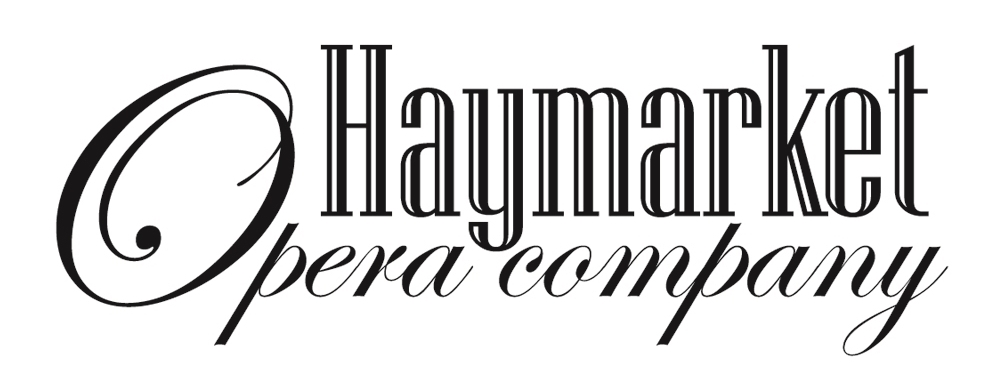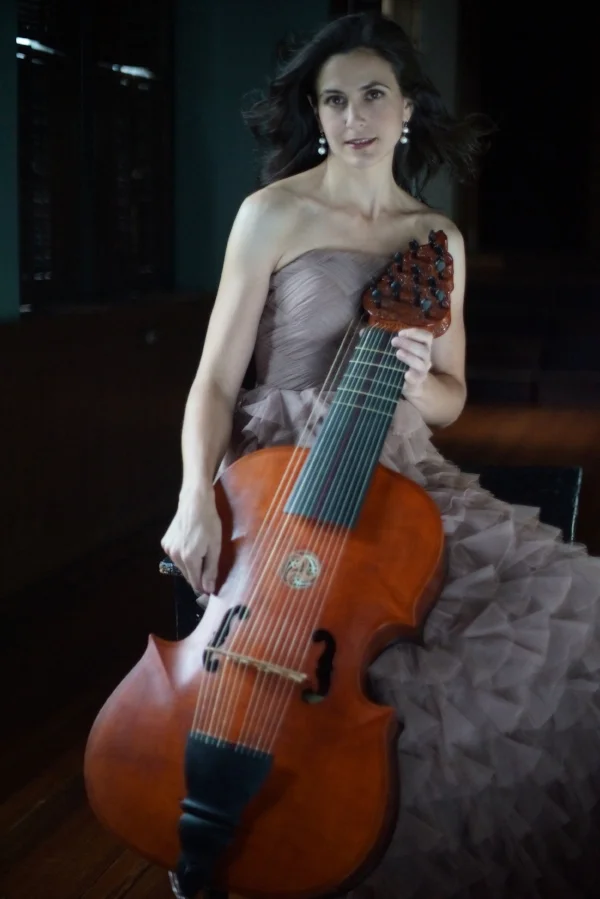Annalisa Pappano is the founder and artistic director of the Catacoustic Consort and led the group as it won the grand prize in the Naxos/Early Music America Live Recording Competition. The Consort has also recorded a program of Italian laments on the Naxos label.
She studied at Indiana University’s Early Music Institute and at Oberlin Conservatory of Music. Her playing is described by critics as “mercurial and enchanting” and “with a sound that is lighter than air with the airy luster of gilding on the mirrors of a rococo drawing room.”
A member of Wildcat Viols and Atalante (England), Pappano performed on the latter’s recording which won both a Diapason d’Or and a Gramophone Award. She has appeared with numerous other ensembles, including Houston Grand Opera, Cincinnati Opera, Cleveland Opera, Portland Opera, Portland Baroque Orchestra, Philharmonia Baroque Orchestra (San Francisco), Les Voix Baroques, Opera Atelier, Toronto Consort, Concord Ensemble, Cappella Artemisia (Bologna), and Consortium Carissimi. These concerts have taken her throughout Belgium, England, Ireland, Colombia, Canada, and the U.S., and she has performed on nationally-syndicated radio. Additionally, she has played at the Boston, Berkeley, and Vancouver Early Music Festivals and the Ojai Music Festival.
She has been a guest lecturer at numerous universities and taught at Viola da Gamba Society of America national conclaves, the Viola da Gamba Society Pacific Northwest and Northeast chapters, the San Diego Early Music Workshop, ViolsWest, and the Madison Early Music Workshop. Currently Pappano teaches viola da gamba at the University of Cincinnati College-Conservatory of Music.
Hear Annalisa in Oratorio per la Settimana Santa March 8 & 10, 2018 - Get your tickets now!
How did you get started in music?
My mom had me take piano lessons when I was 4. I think that is what she had wished for herself. The piano thing didn’t stick, but I sure liked to perform for an audience!
How did you come to play your instrument?
I attended Interlochen Arts Camp and took a class called “Shakespeare’s Music.” It was a blast, and I fell in love with the viol. I later learned of the lirone as a university student at Indiana University’s Early Music Institute. I wrote a paper in my music history class and read about the lirone and determined that I really must have one.
What is the biggest challenge you face as a musician?
I suppose it depends on when you ask. Some years ago my response would have been isolation in my community as an early music specialist. That has changed. Now, maybe it is an overall feeling that we need to dumb down the fine arts and other intellectual pursuits. I am strong in pursuing my artistic convictions and am grateful for organizations like Haymarket that do the same.
Do you have a favorite performer?
I can’t think of one at the moment, but I have memorable performing experiences as an audience member – Tristan und Isolde at Bayreuth or Strauss’ Die Frau ohne Schatten at Munich would have to be two of the musical highlights of my life.
What are a few of your favorite books about music?
I really like Ross Duffin’s book on temperament and have started asking my students to read it.
What else are you reading?
I have a six-year-old, so just 20 minutes ago we were reading one of the Boxcar Children series.
Who are your favorite 17th-and 18th-century composers?
It depends on my mood. I love Rameau. Favorites are hard. Italian music – well, Luigi Rossi is one of my favorites. Sigismondo d’India, maybe?
If you were stranded on a desert island, is there one piece of music you would like to have with you?
That would be terrible. I think I would end up hating that music – would turn into an earworm, I think.
What drew you to early music and period instrument performance?
The supportive teachers that I had – Mark Cudek and Anne Marie Morgan were such lovely instructors for a teenager!
How many instruments do you own?
Uh, I am embarrassed to say. My husband plays piano and loves to give me a hard time about that.
Which one do you play the most?
I probably play my 5-string pardessus the most these days, though right now I am practicing my bass viol for some concerts this Spring.
What do you love about HOC?
I love that there is a Baroque opera company in Chicago. Cincinnati residents (opera lovers) drive up for productions. It normalizes a music that has in the past been considered too elite or obscure. Certainly, I have a lot of respect for Craig Trompeter and Russell Wagner. I am proud that there is something like this in the Midwest!
What is your favorite thing to do when you’re not making music?
I like to spend time with my friends and family.
What is the first thing you think about in the morning?
Coffee.
How would you describe the relationship between you and your instrument?
I feel like I found my voice.
Who are your musical heroes?
Erin Headley for being such a musical pioneer in her rediscovery of the lirone.
If you had to play only one composer for the rest of your career, who would you choose?
Another favorites question… Josquin, d’India, Senfl, I don’t know. Too many to choose from.
What music do you listen to most often?
Stevie Wonder right now.
If you had not been a musician what do you think you would have done instead?
Environmental engineer or doctor.

